The Dragon with the sharp tongue – Gwyn Alf Williams – the life of the maverick historian and TV presenter
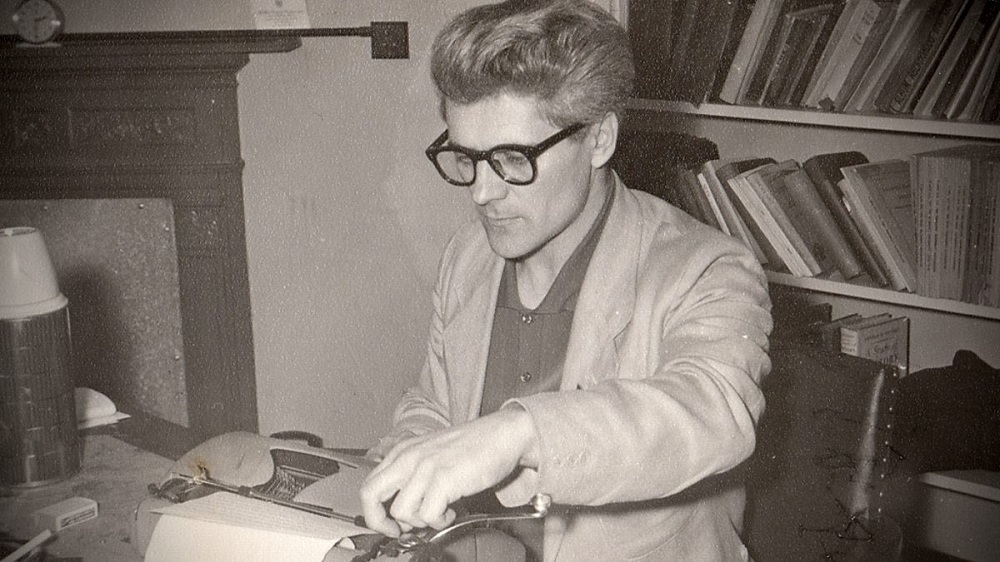
“We’ve been around for 1500 years, but our history has been an endless sequence of brutal ruptures. Break, after break, after break, and with every break the Welsh people have been transformed. So far, we have survived. But we have survived in crisis. For 1500 years, the Welsh people, as a Welsh people, have lived in a permanent state of emergency.” Gwyn Alf Williams
Christopher Evans
Dylan Thomas, R.S. Thomas, Kyffin Williams, Gwen John, Anthony Hopkins, Richard Burton, Michael Sheen, Manic Street Preachers. Wales has produced a litany of venerated and unique poets, writers, musicians, actors and artists throughout its rich history.
Welsh historians are not something that we have tended to celebrate with such vim. Yet, in Gwyn Alf Williams, Wales produced a maverick historian like no other.
An unsung hero, Gwyn Alf Williams was a history academic, lecturer extraordinaire, respected author and infamously dynamic and captivating television presenter.
Early Life
Born in Dowlais on the 30th September 1925, he was one of three children to Welsh-speaking, left-wing parents. Both teachers, they encouraged and fed the young Williams with literature that opened his eyes to his immediate and international surroundings.
Growing up in the heart of industrial Wales at a time of huge social change shaped his resolute beliefs and who he would become. The once iron-rich town of Dowlais had become deprived and desolate. Poverty and unemployment were rife. This left an indelible mark on Williams.
He attended Cyfarthfa Castle Grammar School and Gwernllwyn Independent Chapel, where although mischievous, his intellect and academic abilities stood out.
Somewhat surprisingly, during the inter-war years the young Williams and his friends – The Gwernllwyn Chapel Gang – became interested in a sinister movement happening in Germany. In archive footage from S4C’s 1995 documentary about him, Gwyn Alf: The People’s Remembrancer, Williams discusses how they were “hypnotised” by the Hitler Youth. “We didn’t know anything about their ideas, but their uniforms, their armbands, their songs, their rallies and marches just captivated us.”
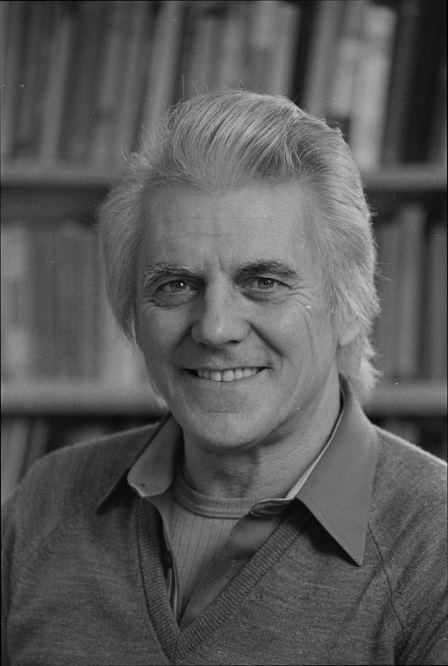
It didn’t last long. Acutely aware of the inequalities both locally and nationally, his internationalism began when he became fascinated by the Spanish Civil War. Having raided his father’s study “to see what made him tick”, he came across his books about Spain.
The Civil War was nearing its end, but Williams was captivated by the stories of ordinary Welsh men, many from his hometown, who gave up everything to volunteer for the International Brigades in the fight against fascism in Spain. He related and empathised with the struggles of socialists and communists in Europe.
“We became passionate members of the International. That is what got us. The idea of an international army of peoples all aiming at the same end.”
Having attended the funeral of a man killed in Spain, Williams was inspired by the communist ceremony, red flags and the playing of the socialist anthem ‘The Internationale’.
“I rushed down to the office and said, ‘give me a gun, send me to Spain!’. I remember there was a huge, high counter – a man’s head came over the top and said ‘son, come back when we are desperate!’”
Conscription
He may not have made it to Spain, but he would soon be fighting on the battlefields of Europe. Despite having won a scholarship to read History at the University College of Wales, Aberystwyth, Williams was conscripted to join the British Army at the age of 18.
In June 1944 he was part of the invasion force sailing for Gold Beach, Normandy. Landing shortly after D-Day, he fought against German Tiger Tanks and survived driving over a landmine.
Williams was in Paris for the celebration of VE Day, but his experiences of the war had affected him greatly. It was in Paris that he witnessed the return of prisoners liberated from concentration camps. He lamented: “They were still in their striped pyjamas. They just stared at us, they seemed completely bewildered, they were grey, they looked alien, they never smiled.”
Fellow historian Professor Geraint H. Jenkins stated that Williams not only lost his grasp of Welsh during his wartime experience, but also developed the debilitating stammer for which he became synonymous.
Academia
Having experienced some of the defining events of the 20th Century first-hand, Williams returned to Wales following the war and married Maria Fernandez, the daughter of a Spanish family in Dowlais.
He graduated from Aberystwyth in 1950 with outstanding first-class honours. He completed a master’s degree before becoming a history lecturer at the university. A medievalist initially, his successful stint at Aberystwyth led to the publication of his first book Medieval London: From Commune to Capital (1963). He taught Welsh history at the university, where his electrifying and exhilarating lectures captivated students and colleagues alike.
Academic and historian Sir Deian Hopkin, who was a student of Williams’ at Aberystwyth, says that he was “astonishing”.
“He was staggeringly good”, says the 78-year-old Sir Deian.
“A consummate lecturer. The Welsh history class wasn’t that big, but his lectures were. People came from other departments. They would hear the rumour of his incredible wit and humour, as well as his unparalleled knowledge – and it was the way he expressed it all.
An example of his wit and prowess was when he had to introduce Michael Foot, who had come to give a lecture on Aneurin Bevan. Gwyn was only supposed to introduce him, but totally upstaged him. He spoke far longer than he should have, but he had the audience in absolute stitches. Michael Foot couldn’t cope with just how brilliant Gwyn was. He just couldn’t follow him.”
Williams’ brilliance led to an offer from York University to take up a Readership.
“He galvanised us and we were just so disappointed when he left,” recalls Sir Deian.
Aberystwyth’s loss was York’s gain. Professor James Walvin, an academic and award-winning author, says that Williams was “the most brilliant man I ever met.”
The now 80-year-old Walvin, who won the Martin Luther King Memorial Prize in 1975 for his book Black and White, was initially a student of Williams at York.
“He was my PhD Supervisor. We would go on to become colleagues. He was an extraordinary phenomenon. He was much underestimated, certainly in England. This was partly because he was a Welshman and that marginalised him. Also, because he wrote primarily about Welsh history, that again marginalised him in a profession historically dominated by English.”
today marks the 25th anniversary of the passing of the great marxist historian gwyn alf williams, whose words still feel so electrifyingly urgent today. his work totally transformed my understanding of history, and how to interrogate the past!pic.twitter.com/CAT48GZAoz
— Stan's Account (@tristandross) November 16, 2020
Passion
Professor Walvin said he has “nothing but fond memories” of his mentor and colleague, but that he could be a divisive character.
“Like many great men he was not without his flaws. He was a prima donna (laughs), there is no denying that, but he was just brilliant. Another famous historian said, ‘the problem with Gwyn is he’s got the Cassius Clay complex, you know, I am the greatest.’ But he was the greatest.”
Walvin says that Williams’ Welshness was something that stood out in York, not something that was always beneficial for him.
“Some people found him difficult, but that is because he was different. Lots of them were set in their rather English, or should I say Oxford ways, and Gwyn didn’t fit that slightly tight-arsed way of doing things, everything referring back to Oxford colleges, that just wasn’t Gwyn. He was very much steeped in south Wales, the world of mining, the chapel, left-wing politics. That’s not Balliol college, Oxford, you know (laughs).
He could flare up and want his own way, but that is true of lots of great people. You have got to live with those things because the benefits of having a brilliant man around outweighed everything.”
Sir Deian corroborates this view. “He had issues with the authorities, that is why I think he was never promoted at Aberystwyth. Gwyn was different, outspoken. The stiff and old-fashioned people couldn’t deal with him. He was just…different. There was a lot of envy – how can you be that brilliant as a lecturer, when most people are bloody awful!”
incredible gwyn alf williams anecdote about reading a saunders lewis poem which attacked the industrial communities of south wales pic.twitter.com/utzC0XlUzV
— Stan's Account (@tristandross) May 21, 2019
Showman
Williams was known for his oratory prowess and showmanship. So much so that it was difficult to find lecture theatres big enough to cope with the demand for witnessing his talks.
“He was certainly the most astonishing public speaker I have ever heard. I include any politician or statesman in that,” says Professor Walvin.
“He could hold his own with anyone. He had an extraordinary ability to master that stammer and use that faltering delivery absolutely brilliantly in a lecture in a way that is very hard to convey unless you experienced it. I know that some people thought that he did it deliberately for theatrical effect, but it’s not true. He just had a stammer. But he used it to great effect.
Whenever he gave a lecture, even if it was on the remotest of obscure topics, you could never find a lecture hall big enough as he packed them out. Not just history students, people from all departments would come to listen to him – no-one else could do that.”
Sir Deian agrees. “I know for a fact that when he was in York, people used to take coaches from Leeds and other places to go to hear him! When we invited him back to Aberystwyth to give a talk, we couldn’t find a hall big enough. They were queuing. It was incredible. And he was just magic!”
“Talk to some of his former students”, says Professor Walvin. “Those who were taught by him have never forgotten it. He was the most inspirational teacher, which most academics aren’t. It’s like taking a sleeping pill with most of them!”
This is confirmed by the fact that the York Anarchist Group (Y.A.G), a group of young socialist students at the university, idolised Williams, even making badges declaring ‘We Are All Welsh History Professors’ and ‘Viva Gwyn’.

Cardiff
Despite his popularity in York, hiraeth set in. In 1974, he was appointed as Chair of History at the University College of Wales, Cardiff.
However, his time in Cardiff was not one that he enjoyed, Williams himself saying that “I was under the illusion I was coming home, but I found that Cardiff was not home at all.”
Despite this, he became a prolific writer during his time at Cardiff, publishing successful books on the Italian Marxist and socialist Antonio Gramsci, Spanish artist Francisco Goya and his inspiring The Merthyr Rising (1978), amongst others.
But Williams struggled to fit in to the old-school, orthodox and old-fashioned History department at Cardiff. His flamboyant and theatrical approach didn’t wash with his colleagues and he quickly became isolated and depressed.
He wasn’t interested in academic politics and became increasingly disillusioned. Professor Geraint H. Jenkins wrote that “he alienated many of his starchy colleagues by becoming a passionate foe of neo-liberalism and by campaigning strongly in support of trade unionism, feminism and peace.”
In 1979, he campaigned fervently for devolution. The campaign failed miserably, and the loss of the referendum affected him deeply. “I felt like the whole of Welsh history had been rendered meaningless by that vote,” he lamented.
His professional and personal life continued on a downward spiral, and Williams, a heavy smoker, turned to alcohol. His marriage ended and by his own admissions he was “in a bad state”.
Fed up of academic life at Cardiff, he took early retirement in 1983 at the age of 53. It seemed his career was coming to an abrupt and premature end. But it was just the beginning.
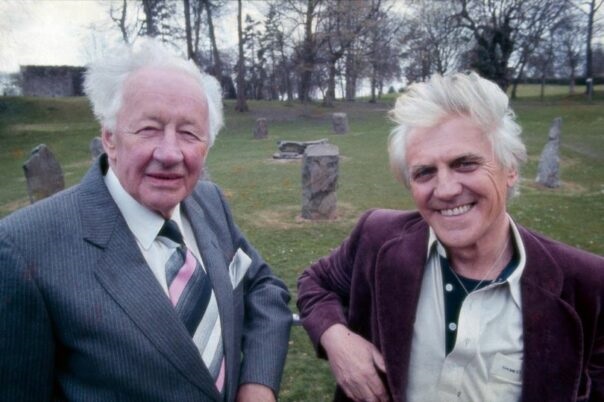
Television – The Dragon Has Two Tongues
Going back to his roots and passions, Williams wrote perhaps his best book ‘When was Wales? A History of the Welsh’, published in 1985. His work was part of a wider movement that reinvigorated interest in Welsh history.
“I think ‘When was Wales’ is one of the brilliant books of that generation of writing by historians,” says his former mentee Professor James Walvin.
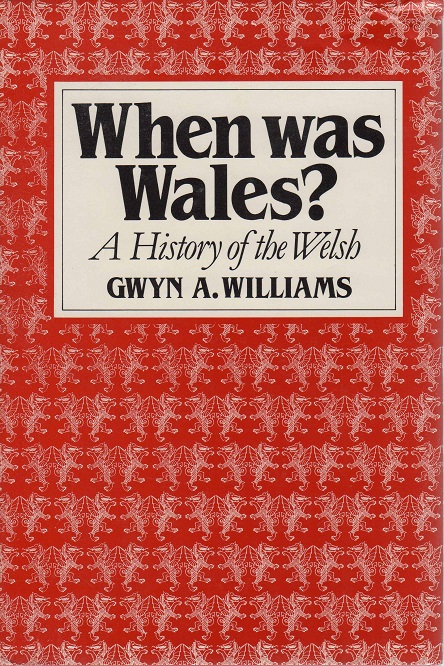
The book was released in the same year as the pioneering television history series ‘The Dragon Has Two Tongues’, which launched Williams’ TV career. The thirteen-part series, which was banished to obscurity for over 35 years due to legal threats from ITV (the original series was for HTV/Channel 4), recently appeared online, bringing with it a fresh new wave of interest.
As one friend put it: “it’s amazing – it’s like watching Welsh history produced by the A-Team!”
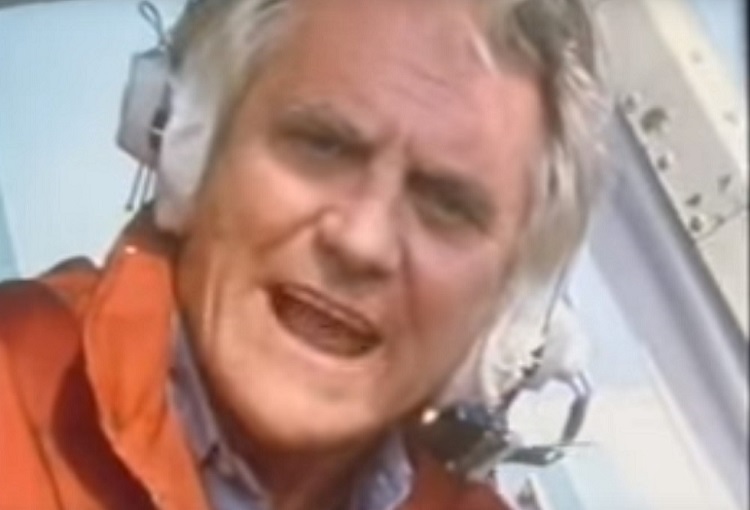
The documentary was ground-breaking in that pitched two opposing views of Welsh history – one from the more conservative historian Wynford Vaughan-Thomas, the other from the Marxian view of Williams.
Directed by the brilliant Colin Thomas, the series’ unique approach worked superbly, as despite both presenters having contrasting views of history, it is clear that there is a mutual respect and that they have a convivial and jocular relationship. It is refreshing to watch it now and see two academics arguing and debating so passionately, but with reason and respect.
Perhaps one of the most poignant clips is of Williams walking through what was once the village of Capel Celyn, so famously and outrageously drowned to supply Liverpool with water.
He points out where the chapel, the graveyard and the post office would have been. With that wonderful delivery, Williams looks angrily at the camera: “the Welsh, if need be, could be drowned by a democratic vote.”
A brilliant Clip of Gwyn Alf walking through what was Capel Celyn – Cofiwch Dreweryn
https://t.co/gsHrUerdNP https://t.co/9saLQGmzD1
— Stan's Account (@tristandross) August 16, 2022
Williams flourished with this new lease of life in television and his new-found fame as ‘the people’s historian’. He continued to make history programmes for the next 10 years, not least the BAFTA Cymru-winning ‘Hughesovka and the New Russia’ (1991), a three-part documentary that looked into the Welsh history of the Ukraine town that is now Donetsk.
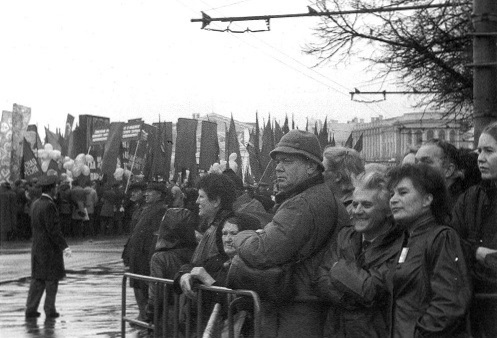
Death
With his partner Siân Lloyd, he moved from Cardiff to the village of Dre-fach Felindre, in Carmarthenshire. Williams enjoyed life in the countryside, but years of heavy smoking had taken its toll on his health. He died of lung cancer on 16th November 1995, at the age of 70.
Funeral
Not one to go out with a whimper, Williams’ funeral was a celebration of his remarkable life.
“I travelled from London to Pembrokeshire for his funeral,” remembers Sir Deian Hopkin.
“It was like a Royal funeral. There were cars and people everywhere, police escorting them along. It was absolutely heaving. There was a brilliant speech by Hywel Teifi Edwards, the father of Huw Edwards, who was a good friend of Gwyn’s. The music was the Red Army Choir singing ‘The Internationale’. At the end, as the coffin was being taken away, all of a sudden the gallery above erupted – it was the Spanish people from Merthyr. They stood up and they all cried “Viva Gwyn”. It was very moving, very emotional.”
What would Gwyn think of today’s political climate?
“Oh, God. He had a lot of hair. I think he would’ve been tearing it out!”, laughs Sir Deian.
“He was very much on the left. I think he would’ve been unhappy about the current Labour Party. But you can’t pigeon-hole Gwyn, you can’t say ‘oh, he’s a communist, or left-wing Labour, or whatever. Gwyn was Gwyn. And Gwyn’s political views were shaped by his own very unique interpretation of the way the world is. You might say there was an element of Marxism there, but I don’t think it’s so simple. I think he would have been quite despairing of what’s going on today.”
This is a view shared by Professor Walvin. “I think he would despair at the current state of the government and our leadership, I have no doubt about that. But his politics were a bit all over the place. He swung from Welsh Nationalists and Plaid Cymru, to fringe left-wing politics. What he would think of the current Labour Party? I don’t know, I really don’t know.
He himself got very confused about it all. He swung wildly between his political affiliations.”
Conclusion
A mere article about Gwyn Alf Williams could never do such a great man justice. It is an impossible task to mention everything that he achieved and did, and who he was.
He was an intellect, a polymath, an orator, a showman. He was charismatic and passionate. He was partisan and a staunch internationalist. He was a socialist, some say a Marxist. He was a proud Welshman who represented and championed the working class.
He didn’t live to see the success of the 1997 devolution referendum. He didn’t live to see the rise and pride in the Welsh language, or the re-emergence of the Welsh independence movement.
If only we could know what Gwyn Alf would have thought about the history that is happening now.
Cofiwch Gwyn Alf.
For more information of Gwyn Alf Williams visit: https://www.gwynalfwilliams.co.uk/
Support our Nation today
For the price of a cup of coffee a month you can help us create an independent, not-for-profit, national news service for the people of Wales, by the people of Wales.






A Dowlias man. scholar and gentlemen.
Viva Gwyn!
I was lucky to have been taught by one of his disciples, a friend of Lewis Lloyd, three great teachers and authors of Hanes Cymru…
Thank you Mr Evans for penning this…
Mr Evans, thanks to you and ebay I am now the owner of a copy of Medieval London…N.C has a great asset in their culture section…
The archetypal Valleys socialist firebrand, Gwyn Alf Williams was mesmeric to watch and to listen to. He’d have a few choice things to say about current Westminster policy towards Wales.
For the record, Wynford Vaughan Thomas wasn’t nearly as unionist as he makes out in ‘The Dragon has Two Tongues’. He was obliged to give a contrary point of view to Gwyn’s in order to prompt a debate on the part of viewers.
That excellent pre-devolution documentary series is on DailyMotion. Well worth a watch.